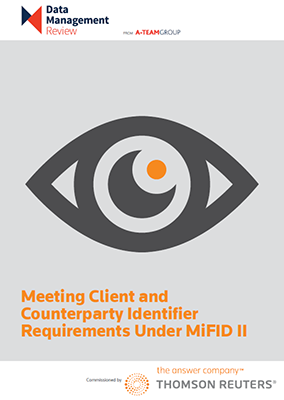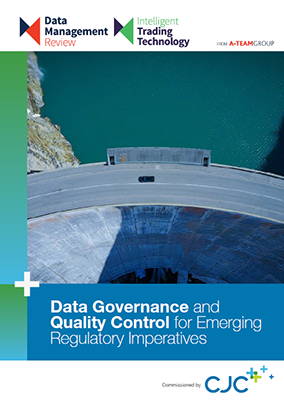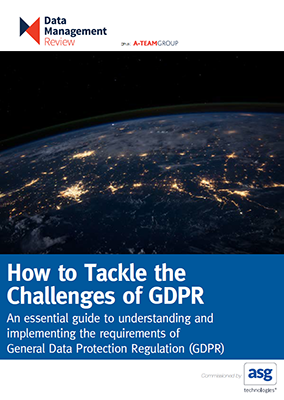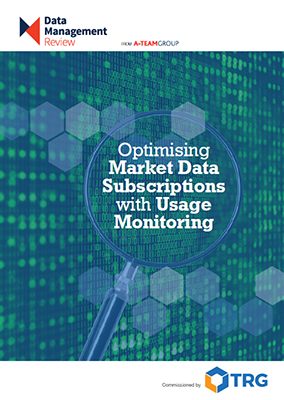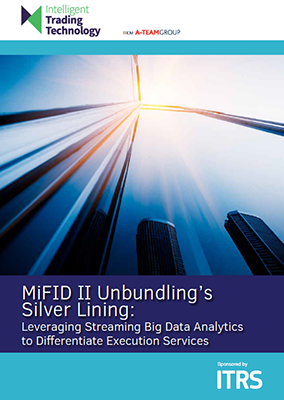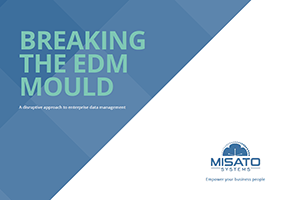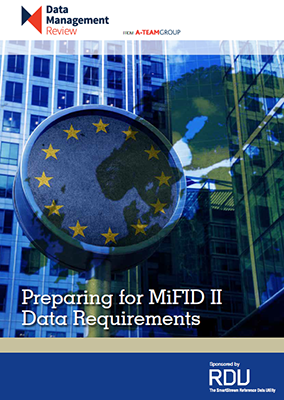A-Team Insight White Paper
Meeting Client and Counterparty Identity Requirements Under MiFID II
The January 3, 2018 compliance deadline for Markets in Financial Instruments Directive II (MiFID II) is approaching fast, requiring firms within its scope to ensure they have access to LEIs to identify all clients, counterparties and issuers they deal with. As the industry mantra goes, and in line with MiFID II and its related Markets...
Data Governance and Quality Control for Emerging Regulatory Imperatives
Impending regulations, following recent price manipulation investigations, will require trading firms to have new data governance and quality controls in place. A new benchmarking study by CJC, in association with A-Team Group, conducted amongst professionals within major Tier 1 and Tier 2 sell side institutions, explores the data governance demands posed by new and emerging...
MiFID II: Setting a Mobile Policy for Compliance and Trading Business
Markets in Financial Instruments Directive II (MiFID II) requires firms to record all trading-related electronic and voice communication. This includes recording communications made using mobile devices, whether they are firm or employee owned. The directive also extends previous requirements to record and store communications that resulted in a trade, to record and store communications that...
MiFID II: Time for Action
As the January 3, 2018 compliance deadline for Markets in Financial Instruments Directive II (MiFID II) approaches, trading businesses within the scope of the regulation must address outstanding technology issues around elements such as transparency, best execution, algorithmic trading, high frequency trading, time synchronisation and systematic internalisation. This White Paper, sponsored by Itiviti, discusses MiFID...
How to Tackle the Challenges of GDPR
Financial institutions around the world are bracing themselves for the onset of the EU’s General Data Protection Regulation (GDPR), which introduces eye-watering financial penalties for firms failing to meet stringent new rules on managing the personal data of EU residents. GDPR – which comes into effect in May 2018 – will have a major impact...
Optimising Market Data Subscriptions with Usage Monitoring
As lines of business demand access to more market data and firms seek to cut the overall cost of data services, the need to understand what market data services are being accessed and used becomes imperative to optimising data subscriptions. This is a challenge, but is made more difficult in an environment where new data...
MiFID II Unbundling’s Silver Lining: Leveraging Streaming Big Data Analytics to Differentiate Execution Services
European MiFID II regulation’s unbundling of broker research from execution services raises the question of how execution service providers can differentiate what they offer once research is no longer part of their relationship with buy-side clients. Best-execution provisions and the performance of brokers’ platforms could become the primary differentiator. This raises a follow-up question –...
Breaking the EDM Mould
The regulatory drive for transparency across capital markets is pushing traditional enterprise data management (EDM) solutions, such as data warehouse platforms and extract, transform and load (ETL) systems, towards breaking point. An emerging and disruptive approach to EDM is based on open source high-performance data bus technologies that are particularly good at ingesting and routing...
Preparing for MiFID II Data Requirements
Markets in Financial Instruments Directive II (MiFID II) is a wide-ranging regulation that aims to add transparency to Europe’s financial services sector in order to ensure investor protection and integrity of markets. The regulation extends the scope of MiFID, which focused on equities, to cover pre-trade, trade and post-trade activities across many asset classes. This...
How Agile Data Management Can Power Business Transformation
Asset managers challenged by increasing regulatory costs and decreasing fees are embarking on business transformation programmes designed to provide more innovative ways to service clients and, in turn, help managers regain competitive edge in a difficult economic environment. Transformation programmes can range from an expansion of asset classes covered, to the introduction of new products...

